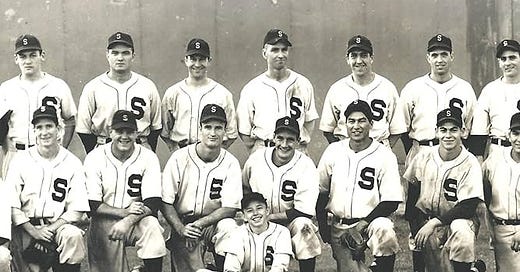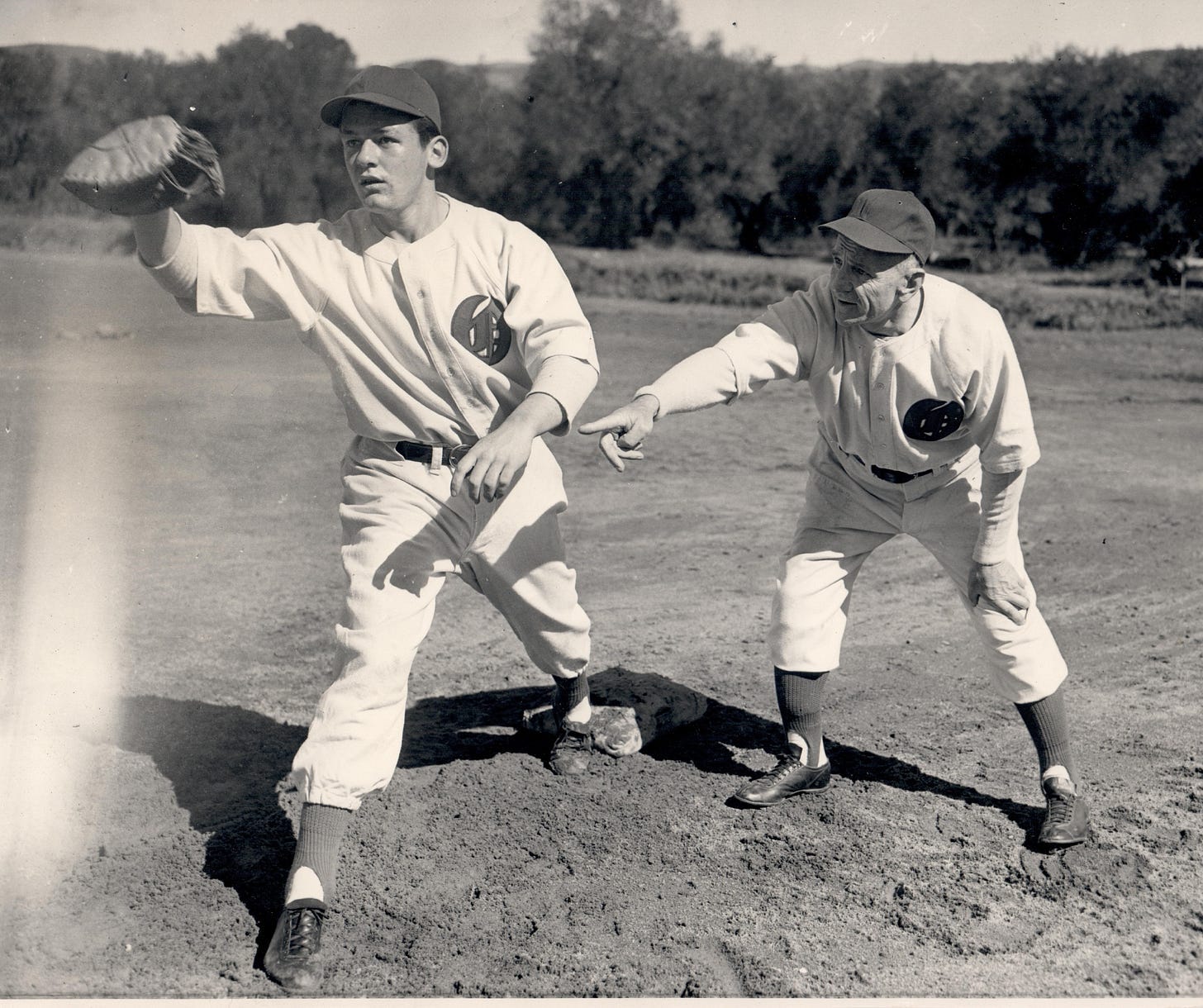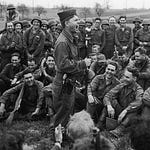On June 24, 1946, a bus carrying 16 members of the Spokane Indians baseball team careened off a mountain pass in Washington’s Cascade mountains, killing nine players. It remains the deadliest accident in the history of American professional sports.
Eric Vickrey’s Season of Shattered Dreams provides an account of what happened before the accident and how individuals coped after such a catastrophic crash.
This was the era of postwar baseball. Like other national institutions, the sport had to recover after four years of fighting. President Franklin D. Roosevelt recognized that keeping baseball going through the war could boost the country’s morale but, with 90 percent of the 5,000 professional ballplayers in the country part of the war effort in some capacity, things certainly weren’t the same. Of the 44 minor leagues in the nation, only nine operated during the war, Vickrey noted.
The 1946 season started with promise, however. “Major league training camps overflowed with players attempting to shake off the rust and rediscover baseball skills put on the backburner during the war,” stated Vickrey.
Vic Picetti (rhymes with machete) was the hottest 18-year-old prospect on the Spokane squad. The San Francisco speedster could hit and was considered a sure bet for the major leagues. Vickrey said one major league team had reportedly offered $50,000 for his services (the equivalent of over $800,000 today).
There’s a picture in Season of Picetti taking instruction from Casey Stengel, then managing in the minors. Vickrey said the Picetti family offered up a scrapbook of the young man’s baseball accomplishments still treasured after almost 80 years since the 18-year-old Picetti died in the bus crash.
Vic Picetti takes instruction from manager Casey Stengel in 1946.
The accident took place on Snoqualmie Pass some 50 miles east of Seattle. Vickrey describes how a black sedan, trying to pass a truck on the narrow mountain road, suddenly appeared in the wrong lane in front of the bus as it was headed downhill over the pass. The sedan clipped the front end of the bus. The driver tried valiantly to keep the vehicle on the road but the bus broke through the protective guard cables, plunging over the side of the ravine.
Ben Geraghty, who had earlier switched seats with another player, was thrown out a window. After regaining consciousness, he viewed a gruesome scene: the bus had burst into flames and come finally to rest on the embankment some 300 feet from the road. He took off his jacket to smother the flames from a teammate.
Geraghty recovered and, while he never played baseball again, went on to a 20-year career as a minor-league manager, achieving success with several teams while being highly regarded for his baseball knowledge and handling of players. Hank Aaron, who played for Geraghty with the Jacksonville Braves in 1953, called him the finest human being he ever met.
Jacksonville was a club in the Sally League, made up of teams from Southern states that had never allowed players of color in its 49-year history. That changed in 1953 when Aaron, Felix Mantilla, and Horace Garner joined the team. When black players were prohibited from eating in some of the restaurants with their white teammates, Geraghty would order burgers and bring them back to the bus, noted Vickery.
Sadly, Geraghty never achieved his goal of managing in the big leagues, remaining in the minor leagues to teach players the fundamentals of the game he loved so much. In the minors, players usually traveled by bus which meant Geraghty spent years riding about with the memories of that fateful day Snoqualmie Pass. “Ben would sit behind the driver and consume a case of beer each trip in an attempt to drown away the nightmarish images…of that horrible crash,” stated Pete Wevurski, a sportswriter with the Jersey Journal.
Vickrey also includes the story of Jack “Lucky” Lohrke, a member of the Spokane Indians who was on the bus the day of the accident but was called up by the San Diego Padres, a team in the Pacific Coast League.
When the bus stopped for dinner at Webster’s Café in Ellenburg, halfway to the team’s destination in Bremerton, Wash., Lohrke had orders to return to Spokane. He grabbed his belongings off the bus and said goodbye to his teammates (many for the last time). Lohrke then set off hitchhiking back to town.
Lohrke went on to spend some six seasons in the big leagues including a season with the New York Giants in 1951, the year when the Giants won the National League pennant in the playoff game decided by Bobby Thompson’s home run.
The impact of the crash was devastating to the families involved, said Vickery. The wives of three of the players who died were pregnant and Picetti was engaged. In addition to the nine players who died, five were injured. The survivors tried mightily to continue but, except for Geraghty, settled for jobs outside of baseball.
Vickery, who spent a year doing interviews and completing research for the book, recently visited the scene of the accident. A major interstate now cuts through that section of the mountains but Vickery said the original route is still visible as a forest service road. Knowing the story of the accident as he did proved unsettling. “Writing about the tragedy stirred up some emotions in me,” he said.
















Share this post